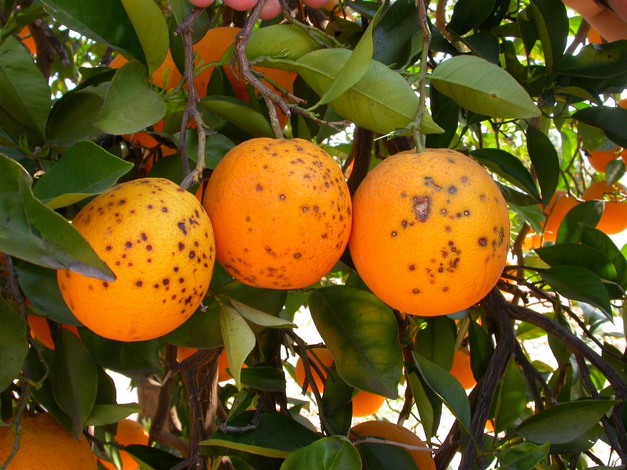AVA Asaja reported that, in September, the EU had detected five shipments of citrus fruits from South Africa contaminated with the quarantine pest Phyllosticta citricarpa. The pest was found in a shipment of lemons, as well as in a shipment of mandarins, and in three shipments of oranges. In addition to the 33 interceptions of black spot so far in the export campaign to Europe, South African citrus fruits already have a total of 38 detections infested with this disease that would cause serious losses to the sector, if it entered and spread in the Community citrus industry."

"This number of black spot interceptions on South African citrus fruits is barbaric and puts the European Commission in an unsustainable and shameful position," the Valencian association stated. AVA Asaja asked the MEPs to "condemn the commissioners, directorates general, and policymakers with competences in this matter if they do not indefinitely close the borders to all citrus fruits from South Africa until the Community inspectors verify that this third country is able to guarantee its plant health. As long as they continue to look the other way, they will be complicit in an intolerable phytosanitary risk that threatens European citrus cultivation due to particular commercial interests."
False Moth
The EU monthly report also reports an interception of the false moth (Thaumatotibia leucotreta) in a shipment of mandarins from South Africa. AVA-ASAJA warned that "this new detection of false moths in South African mandarins once again highlights the need to extend cold treatment to all citrus species that have the risk of spreading this quarantine pest. It makes no sense from a scientific point of view to only apply this mechanism to oranges when mandarins and grapefruits also pose the same phytosanitary risk."
Finally, AVA-ASAJA highlighted that South Africa was once again the leading country in the number of interceptions, reaching a total of 99 notifications in September, especially in citrus. "All these notifications show that South Africa is a third country that can't be trusted, just like the European officials who consent to this," stated AVA-ASAJA.
For more information:
AVA Asaja
www.avaasaja.org
